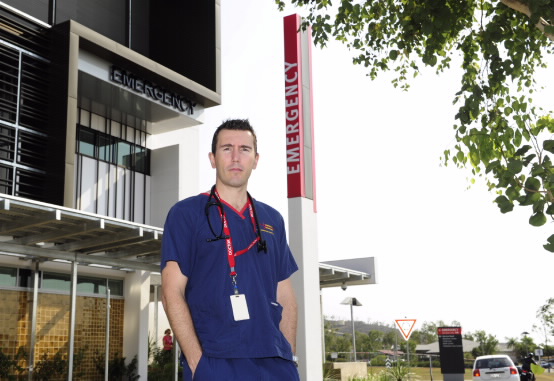Media Releases
JCU Doctors in World-first Epilepsy Treatment
JCU Doctors in World-first Epilepsy Treatment

Dr Jeremy Furyk. (Pic: Ian Hitchcock)
James Cook University scientists are leading a drug trial which is attempting to find a better treatment for kids with a life threatening form of epilepsy.
JCU’s Dr Jeremy Furyk is coordinating the work, funded by a grant of more than $140,000 from the Queensland Emergency Medicine Research Foundation, on top of other funding from the Health Research Council of New Zealand.
Researchers will work at the Townsville, Gold Coast University and Lady Cilento Children’s hospitals with researchers from the Paediatric Research in Emergency Departments International Collaborative (PREDICT) network.
They will test the effectiveness of the drug Levetiracetam on children who arrive at the hospitals’ emergency departments suffering from Convulsive Status Epilepticus (CSE).
CSE occurs when children suffer a seizure that fails to stop with initial anti-seizure medications and can lead to brain damage or death.
Levetiracetam in oral form has been used for more than a decade as a treatment of epilepsy, but the researchers will be using the intravenous form of the medication. They believe it may be more effective and work faster than the currently available treatment, and without the same serious side-effects.
Dr Furyk said it will be the first test of the drug in emergency conditions. “No one has compared it with the current drug, Phenytoin in clinical trials before.”
Which of the two drugs is to be used first on individual patients will be decided by a process of randomisation. The research has been approved by the appropriate ethics committees across Australia and New Zealand.
The team believes children who are treated with Levetiracetam will benefit in terms of the time it takes for the drug to work, the need for a breathing tube to be inserted, the length of time of the hospital stay, and the long-term effects of the seizure.
“If the hypothesis is confirmed it will have a profound impact on the management of CSE in children in New Zealand, Australia and worldwide,” said Dr Furyk.